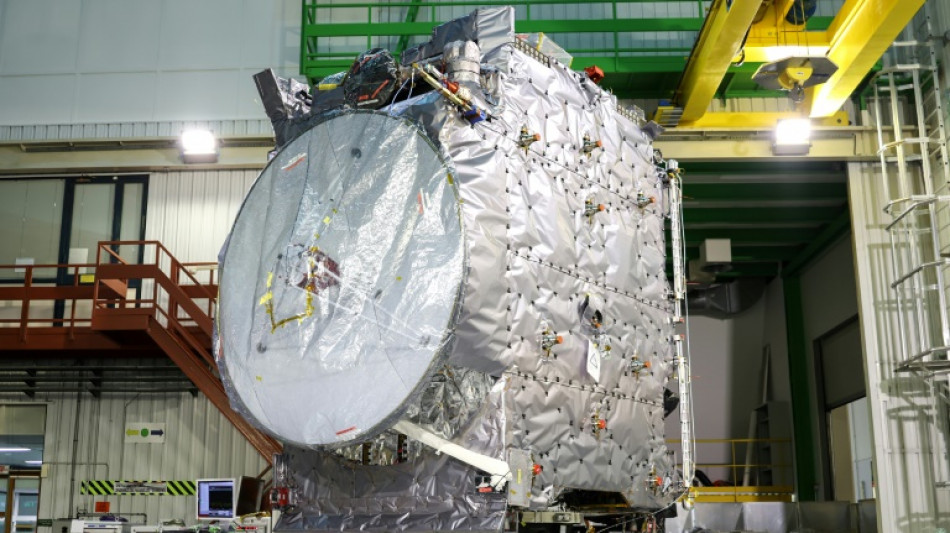
-
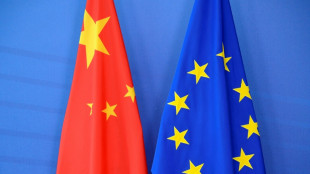 EU slams China dairy duties as 'unjustified'
EU slams China dairy duties as 'unjustified'
-
Italy fines Apple nearly 100 mn euros over app privacy feature
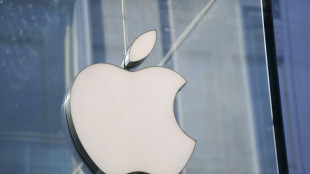
-
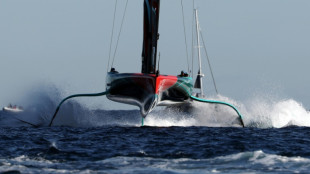 America's Cup switches to two-year cycle
America's Cup switches to two-year cycle
-
Jesus could start for Arsenal in League Cup, says Arteta

-
 EU to probe Czech aid for two nuclear units
EU to probe Czech aid for two nuclear units
-
Strauss says sacking Stokes and McCullum will not solve England's Ashes woes

-
 Noel takes narrow lead after Alta Badia slalom first run
Noel takes narrow lead after Alta Badia slalom first run
-
Stocks diverge as rate hopes rise, AI fears ease

-
 Man City players face Christmas weigh-in as Guardiola issues 'fatty' warning
Man City players face Christmas weigh-in as Guardiola issues 'fatty' warning
-
German Christmas markets hit by flood of fake news

-
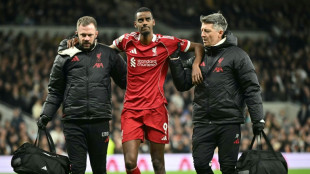 Liverpool fear Isak has broken leg: reports
Liverpool fear Isak has broken leg: reports
-
West Indies captain says he 'let the team down' in New Zealand Tests
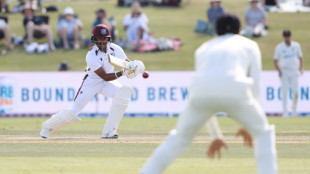
-
 Thailand says Cambodia agrees to border talks after ASEAN meet
Thailand says Cambodia agrees to border talks after ASEAN meet
-
Alleged Bondi shooters conducted 'tactical' training in countryside, Australian police say

-
 Swiss court to hear landmark climate case against cement giant
Swiss court to hear landmark climate case against cement giant
-
Knicks' Brunson scores 47, Bulls edge Hawks epic

-
 Global nuclear arms control under pressure in 2026
Global nuclear arms control under pressure in 2026
-
Asian markets rally with Wall St as rate hopes rise, AI fears ease

-
 Jailed Malaysian ex-PM Najib loses bid for house arrest
Jailed Malaysian ex-PM Najib loses bid for house arrest
-
Banned film exposes Hong Kong's censorship trend, director says

-
 Duffy, Patel force West Indies collapse as NZ close in on Test series win
Duffy, Patel force West Indies collapse as NZ close in on Test series win
-
Australian state pushes tough gun laws, 'terror symbols' ban after shooting

-
 A night out on the town during Nigeria's 'Detty December'
A night out on the town during Nigeria's 'Detty December'
-
US in 'pursuit' of third oil tanker in Caribbean: official

-
 CO2 soon to be buried under North Sea oil platform
CO2 soon to be buried under North Sea oil platform
-
Steelers edge Lions as Bears, 49ers reach playoffs

-
 India's Bollywood counts costs as star fees squeeze profits
India's Bollywood counts costs as star fees squeeze profits
-
McCullum admits errors in Ashes preparations as England look to salvage pride

-
 Pets, pedis and peppermints: When the diva is a donkey
Pets, pedis and peppermints: When the diva is a donkey
-
'A den of bandits': Rwanda closes thousands of evangelical churches

-
 Southeast Asia bloc meets to press Thailand, Cambodia on truce
Southeast Asia bloc meets to press Thailand, Cambodia on truce
-
As US battles China on AI, some companies choose Chinese

-
 AI resurrections of dead celebrities amuse and rankle
AI resurrections of dead celebrities amuse and rankle
-
Tectonic Metals Drills 4.05 G/T AU Over 30.48 Meters, Including 8.84 G/T AU Over 13.72 Metres at Flat Gold Project, Alaska

-
 Switching Payroll Providers Won't Fix Past IRS Errors - Clear Start Tax Warns Business Owners About Lingering Liability
Switching Payroll Providers Won't Fix Past IRS Errors - Clear Start Tax Warns Business Owners About Lingering Liability
-
Ovation Science Sees Expanded Opportunities for Its Topical Products Following U.S. Cannabis Rescheduling

-
 PPX Mining Appoints Ernest Mast as President and CEO and Announces Stock Option Grants
PPX Mining Appoints Ernest Mast as President and CEO and Announces Stock Option Grants
-
Rio Grande Resources Completes 2025 Field Program and Advances Drill Targeting at the Winston Gold-Silver Project

-
 Eco Innovation Group (ECOX) Receives Strong Speculative Buy Rating from Harbinger Research Following Strategic Costa Rica Expansion
Eco Innovation Group (ECOX) Receives Strong Speculative Buy Rating from Harbinger Research Following Strategic Costa Rica Expansion
-
DealFlow Discovery Conference Announces Panel on Microcap Deal Trends and Regulation for 2026, Featuring Richard Anslow of Ellenoff Grossman & Schole

-
 EonX Announces Update To Loan Facility
EonX Announces Update To Loan Facility
-
Silver X Mining Announces Management Update

-
 Medicus Pharma Ltd. Announces Engagement With Reliant AI to Develop Artificial Intelligence (AI) Driven Clinical Data Analytics Platform
Medicus Pharma Ltd. Announces Engagement With Reliant AI to Develop Artificial Intelligence (AI) Driven Clinical Data Analytics Platform
-
Revolve Receives Generation Permit Approval for 130 MW El 24 Wind Project in Mexico

-
 NuRAN Restores Sites in Ghana and Resumes Network Deployment Activities in the Democratic Republic of the Congo
NuRAN Restores Sites in Ghana and Resumes Network Deployment Activities in the Democratic Republic of the Congo
-
1933 Industries Issues Final Reminder to 2024 Debenture Holders: December 22 Is the Deadline to Convert
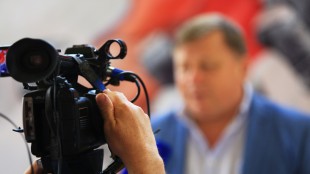
-
 Arrive AI to Attend CES 2026 to Engage Industry Leaders on the Future of Autonomous Delivery and AI-Driven Logistics
Arrive AI to Attend CES 2026 to Engage Industry Leaders on the Future of Autonomous Delivery and AI-Driven Logistics
-
Guanajuato Silver Receives TSXV Conditional Approval for Bolanitos Acquisition

-
 Brenmiller Energy CEO Avi Brenmiller Issues Year-End Letter to Shareholders
Brenmiller Energy CEO Avi Brenmiller Issues Year-End Letter to Shareholders
-
1933 Industries Achieves Positive Income in Q1 2026, Marking Third Consecutive Profitable Quarter


Europe's JUICE spacecraft ready to explore Jupiter's icy moons
Europe's JUICE spacecraft is all ready to embark on an eight-year odyssey through the Solar System to find out whether the oceans hidden under the surface of Jupiter's icy moons have the potential to host extraterrestrial life.
For now, the Jupiter Icy Moons Explorer (JUICE) is in a white room of its manufacturer Airbus in the southwestern French city of Toulouse. But its days on this planet are numbered.
Soon the spacecraft will be put in a container, wings carefully folded away, ahead of travelling to Europe's spaceport in Kourou, French Guiana off the coast of South America in early February.
From there, one of Europe's most ambitious space missions ever is scheduled to launch in April.
The scientists and engineers in Toulouse who have spent years working on the project are clearly emotional at the thought of saying goodbye to what they call "the beast".
They finally unveiled the six-tonne spacecraft to journalists on Friday -- showing off its 10 scientific instruments, antenna 2.5 metres (eight feet) in diameter for communicating with Earth, and vast array of solar panels which still need to be tested one last time.
As a parting gift, a commemorative plaque was mounted on the back of the spacecraft in tribute to Italian astronomer Galileo Galilei, who was the first to spot Jupiter and its largest moons in 1610.
Volcanic Io and its icy siblings Europa, Ganymede and Callisto were "the first moons discovered outside of our own," said Cyril Cavel, the Airbus project manager for JUICE.
Cavel carried a copy of Galileo's "Sidereus Nuncius", the first treatise based on observations made through a telescope.
More than 400 years later, JUICE will give a far clearer image of Europa, Ganymede and Callisto, before becoming the first spacecraft to orbit around one of Jupiter's moons.
- Earth is 'like a catapult' -
It will be the first European space mission that ventures into the outer solar system, which begins beyond Mars.
Jupiter is more than 600 million kilometres (370 million miles) from Earth and JUICE will take a circuitous path before its scheduled arrival in July 2031.
The spacecraft will travel a total of two billion kilometres, using the gravity of Earth -- then Venus -- for a boost along the way.
"It's like a catapult that gives us momentum to Jupiter," said Nicolas Altobelli, JUICE project scientist at the European Space Agency (ESA).
The extra travel time will allow JUICE's solar panels -- which cover an area of 85 square metres, the largest ever built for an interplanetary spacecraft -- to soak up as much power as possible.
It will need that power once it crosses the "frost line" between Mars and Jupiter, when temperatures could drop to minus 220 degrees Celsius.
Then JUICE will need to carefully hit the brakes so it can slip into Jupiter's orbit. For that part, it's on its own.
"We will follow the manoeuvre from Earth without being able to do anything -- if it fails, the mission is lost," Cavel said.
From Jupiter's orbit, the satellite will make 35 flybys of Europa, Ganymede and Callisto. Then it will enter the orbit of Ganymede, the largest of the three, before eventually falling to its surface.
- Not looking for 'big fish' -
JUICE's ice-penetrating cameras, sensors, spectrometers and radars will probe the moons to determine whether they could be habitable to past or present life.
It will not be looking at the frozen surface of the moons but 10-15 kilometres below, where vast liquid oceans flow.
This extreme environment could be home to bacteria and single-celled organisms.
But the mission will not be able to detect "big fish, or creatures," ESA director-general Josef Aschbacher said.
Instead it will look for conditions capable of supporting life, including liquid water and a source of energy, which could come from the tidal effect Jupiter's gravity has on its moons.
Measuring magnetic signals could determine whether water on Ganymede is in contact with its rocky core, which would allow chemical elements necessary for life "to be dissolved into the water," Altobelli said.
NASA's Clipper mission is planned to launch in 2024 on its own quest to study Europa.
If one of the moons prove to be a particularly good candidate to host life, the "logical next step" would be to send a spacecraft to land on the surface, Cavel said.
He added that he was moved at the thought that JUICE "will end its life on the surface of Ganymede".
O.Karlsson--AMWN


